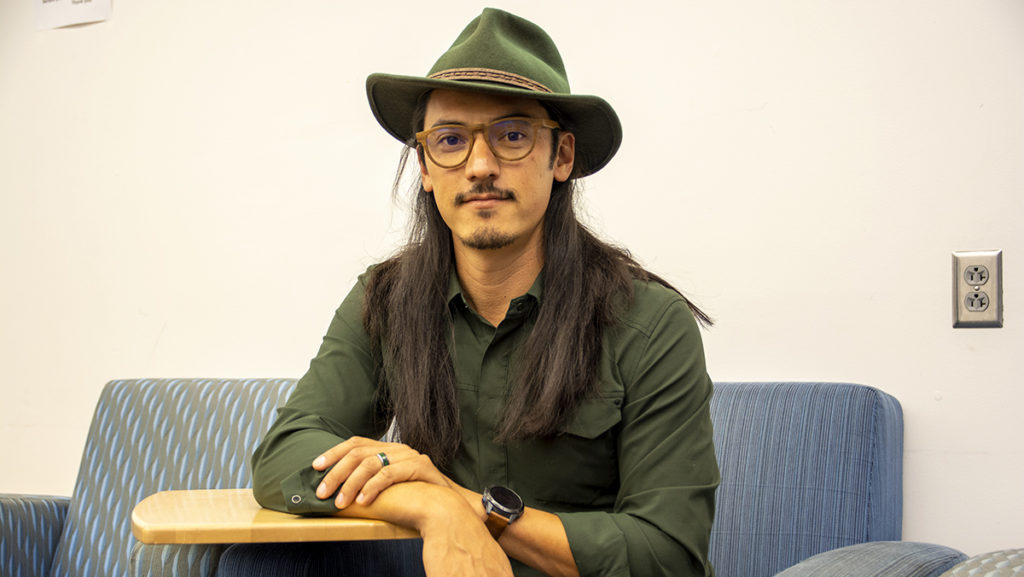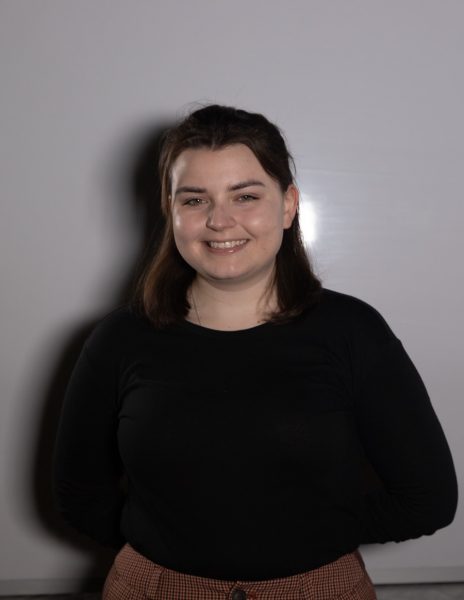Jeff Orlowski-Yang is an American filmmaker who primarily directs and produces documentaries. Some of Orlowski-Yang’s most well-known works include his 2017 film, “Chasing Coral,” and his most recent film, “The Social Dilemma,” released on Netflix in 2020.
According to Netflix, “The Social Dilemma” dives into the dangers that come with social networking with experts in the field of technology calling for caution on their own programs. Interviews came from past employees of media giants like Facebook, Instagram, Google, Twitter and more.
On Sept. 22, Orlowski-Yang will be making an appearance at Ithaca College as a 2022 Park Distinguished Visitor to give a presentation on the making of “The Social Dilemma” and a master class titled “Filmmaking from A-Z: Development, Financing, and Fundraising” from Sept. 19 to 21.
Staff writer Emma Kersting spoke with Orlowski-Yang on his process for filmmaking and advice for aspiring filmmakers.
This interview has been edited for length and clarity.
Emma Kersting: Why do you make documentaries?
Jeff Orlowski-Yang: I love documentaries because I feel like it’s a very accessible medium for the public, and I enjoy the challenge of the process of making films. It’s a combination of art and writing and photography and music, and we get to spend our time thinking about really big ideas and big issues and work to make them accessible for the audiences.
EK: Where does your inspiration come from when you’re creating documentaries? Specifically, what inspired you to make your most recent film, “The Social Dilemma”?
JOY: Almost always I am thinking about this one prompt: what are the stories that we need in society today? And, in turn, it all comes back to that — what are the stories that we need? And that’s in my mind as a driving force around the stories that I choose and our team … chooses. So, working from that lens and finding a way to learn about those ideas and convey those ideas.
EK: Was there any particular instance that inspired you to make “The Social Dilemma”?
JOY: For me, that project really came from our main protagonist, Tristan [Harris]. I saw him starting to talk about technology as an insider in a way that I’ve never heard from anybody before and I really started realizing it in 2017 — that’s when we started paying attention to what [Harris] was saying and some of his peers and that’s what led us down the path to explore the subject.
EK: Going back to the process of creating a documentary, what are the key elements?
JOY: I don’t typically think of the word documentary as a medium, I think of it more broadly as fiction or nonfiction; it’s a big fork in the road. … We’re trying to get down to a societal truth and to use filmmaking techniques to convey to the public what is at the center of an issue. I think there are a lot of ways stylistically that you can convey that. With “The Social Dilemma,” we used scripted and unscripted elements to convey that story, but it’s still a nonfiction story in my mind because everything that we scripted is still coming from the truth and the source of these insiders that are explaining these principles to us. I think the medium of documentary or the medium of nonfiction filmmaking is changing a lot over recent years as techniques have morphed and technology has changed and cameras are more and more accessible. I think that’s really exciting. We get to play with a medium and come up with new and creative ways to tell that story.
EK: How does the knowledge you gain from your films impact you?
JOY: One of the things that I love about filmmaking like this in general is that it is sort of an excuse to become a subject matter expert, you know? We spent years studying an issue just so we can convey to the public, and in the process, that knowledge changes us as a team. Our environmental films completely change the way I think of the natural world and my role in it and “The Social Dilemma” changed the way I use technology. I can’t express that enough — my usage of tech is night and day different before and after “The Social Dilemma.” I feel like filmmaking is pursuing a doctoral degree; it’s a couple of years spent going really, really deep on one issue and trying to explore it and understand it.
EK: How do you hope your visit to Ithaca College will impact the students that come to your panel?
JOY: I think the biggest thing for me is that I’ve learned so much from other people, from other mentors and teachers. The process of learning from others has probably been the single biggest thing that has shaped my life. I’m really grateful for the opportunity to pay that knowledge forward, to share what I’ve learned with other people. I hope that my experience can make the process — whether it’s for filmmaking or pursuing anything in life — … a little easier for somebody else to not have to learn the same lessons and the same mistakes. I think if you can learn from somebody else’s failures, you can skip a lot of that pain yourself.
EK: What advice would you give to aspiring filmmakers?
JOY: I think the biggest thing for aspiring filmmakers is that you just have to start making movies. And the technology is available now that you don’t need that much equipment or money to make a film. Documentaries, or nonfiction films, it’s also a really great place to start because usually you don’t have to hire actors, you can just go and start filming potential subjects. So just start. Just start making stuff and make as much as you can and get honest feedback from people that you really trust. I think that’s one of the most important things. Keep doing it over and over and over and over again.









